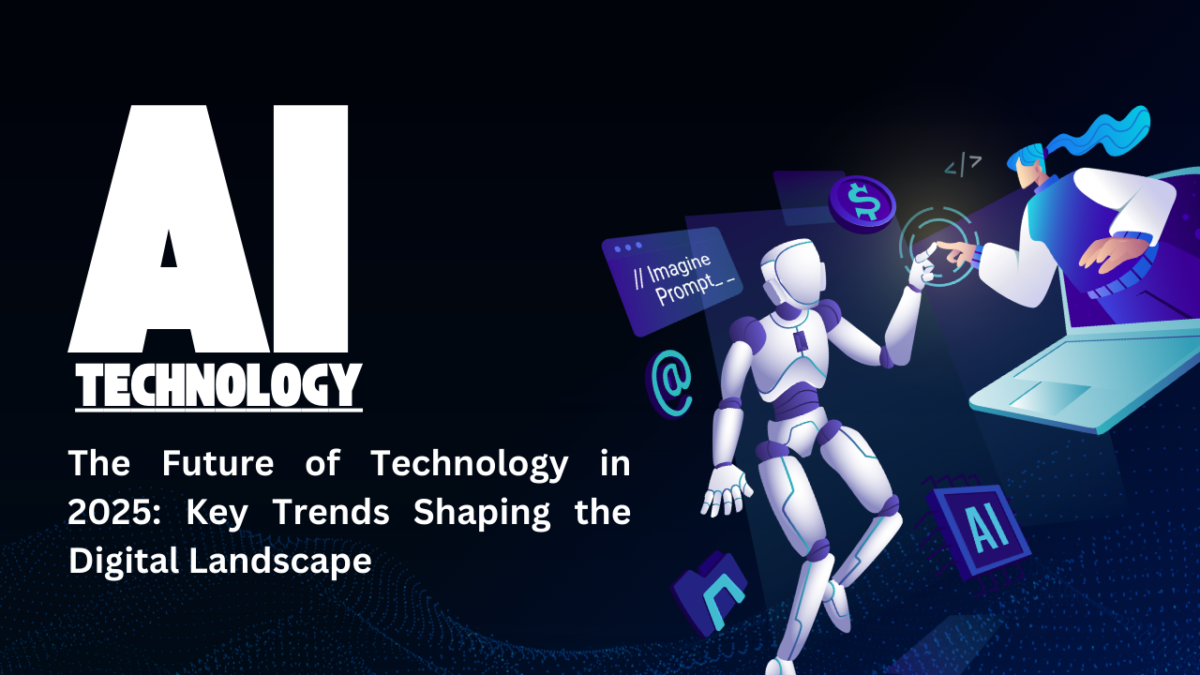The tech world is changing faster than ever, shaking up industries left and right. As we glance at what 2025 might bring, there are a few big trends that could seriously change the game for businesses and how we all use tech. Let’s dive into some of these trends: the spread of AI to the masses, leaps in quantum computing, the rollout of 5G everywhere, robots and automation taking over tasks, AI stepping up in cybersecurity, augmented reality making shopping more fun, and edge computing becoming a thing.
Democratization of AI
Artificial Intelligence (AI) has really become a big deal in today’s business world. More and more companies are jumping on the AI bandwagon, using it for at least one part of their operations. As there are so many open-source options out there now, and the costs to get started have dropped quite a bit. This means even the little guys—small businesses—can get in on the action, competing toe-to-toe with the big fish.
Take OpenAI, for instance, they’re the brains behind ChatGPT, and they’re all about making AI available to everyone. By doing this, they’re giving businesses of all sizes the tools to dive into data analysis and automation. It’s like handing over a magic wand to boost innovation and efficiency.
Small businesses can now use AI-driven solutions to up their game in customer service, streamline their operations, and make decisions based on solid data. As AI becomes even more user-friendly, we’re likely to see it popping up in all sorts of industries, doing things we might not even have imagined.
Quantum Computing Advancements
Quantum computing is really starting to profoundly altering the technology landscape, edging closer to becoming something we can actually use in everyday life. It seems like everyone is throwing money at quantum startups, and big players like IBM are leading the way. They’re unveiling these mind-blowingly powerful quantum computers that can solve problems faster than you can say “supercomputer.”
The potential of quantum computing is enormous, with applications spanning across various fields such as life sciences, finance, and logistics. These machines can handle massive data sets and perform calculations that would leave a traditional computer gasping for air. In the realm of life sciences, they could accelerate drug discovery by simulating molecular interactions at lightning speed. Over in finance, they might just refine trading strategies and manage risks like a seasoned pro.
As these possibilities become more tangible, we might be looking at a game-changer for industries worldwide—and possibly even a significant boost for the economy. Who knows? Maybe one day quantum computing will be as common as smartphones are now.
5G Expansion
The rollout of 5G technology is dramatically transforming the digital world. With its lightning-fast data speeds and super low latency, 5G is about to change how we do real-time communication and data processing. It’s like opening the door to a whole new world for things like the Internet of Things (IoT), augmented reality (AR), and self-driving cars.
5G lets tons of devices connect without a hitch, paving the way for smart cities and making industrial operations run smoother than ever. In the car world, 5G is a game-changer for self-driving vehicles, letting them talk to each other and their surroundings in real time, which is pretty crucial for safe and smooth rides.
And let’s not forget about AR. 5G is set to turn it on its head by giving us the bandwidth and low latency needed for some seriously immersive experiences in shopping, healthcare, and even entertainment. As 5G networks spread their wings, we’re on the brink of a wave of new and exciting applications that will make the most of what it can do.
Robotics and Automation
Robotics and automation are moving at lightning speed letting machines tackle more and more complex jobs all by themselves. We can really see this happening in places like factories and hospitals, where robots are stepping in for precise tasks and even helping out with surgeries.
Throwing AI into the mix with robotics is like giving them a brain boost. These AI-driven robots are getting smarter, learning from their surroundings, and getting better at what they do over time. They’re becoming the MVPs in production lines and medical procedures, making everything more efficient, accurate, and safe.
In the world of manufacturing, robots are drastically changing things up by streamlining the whole production process and cutting down on the need for manual labor. This means more stuff gets made faster and for less money. And over in healthcare, robotic assistants are pulling off some pretty intricate surgeries with amazing precision, which is leading to better results for patients and quicker recovery times.
AI in Cybersecurity
As cyber threats get sneakier and more complex, AI’s role in keeping our digital world safe is becoming super important. These AI systems are out there spotting weird stuff and jumping into action right away, making security way better across all sorts of industries.
Imagine this: AI-driven cybersecurity tools can sift through mountains of data to spot patterns that might mean trouble. By catching these threats early, companies can stop them from blowing up into full-scale attacks. And with cyber-attacks happening more often than ever, using AI to protect sensitive data and keep businesses running smoothly is pretty much a no-brainer.
AI can handle the boring, routine security tasks, which means people can focus on the big-picture stuff. These systems are always learning from new data, so they can keep up with new threats and offer strong defenses. It’s like having a digital watchdog that’s always on duty.
Augmented Reality (AR) in Retail
Augmented Reality (AR) is significantly reshaping the retail world, giving shoppers a whole new way to interact with products. Imagine being able to see how that new sofa looks in your living room before you even buy it. AR is doing just that—helping customers visualize items in their own spaces, which means they’re happier with their purchases and less likely to return them.
Retailers are jumping on the AR bandwagon too. They’re setting up virtual fitting rooms where you can try on clothes without leaving your house. This not only makes shopping more fun but also helps stores keep track of their stock better. Plus, AR can dish out detailed product info and personalized suggestions, making shopping feel like it was tailored just for you.
And it’s not just online shopping that’s getting a makeover. Brick-and-mortar stores are using AR to create immersive experiences right in the shop. You can use AR apps to find your way around the store, get the lowdown on products, and snag special offers. It’s like having a personal shopping assistant in your pocket, making the whole experience smoother and more enjoyable.
Edge Computing
Edge computing is really starting to make waves as a key technology for handling data closer to where it’s created. It cuts down on delays and lets us make decisions in the blink of an eye. That’s a game-changer for stuff like self-driving cars and industrial IoT, where you need to crunch the numbers right away.
Take autonomous vehicles, for example. Edge computing lets these cars process sensor data on the spot, so they can make quick, smart choices. That’s pretty crucial for keeping things safe and running smoothly on the road. And in the world of industrial IoT, having edge computing means machines can be monitored and controlled in real-time, boosting efficiency and cutting down on downtime. Who wouldn’t want that?
But wait, there’s more! By spreading out data processing, edge computing also steps up data privacy and security. Sensitive info gets handled right there on the spot, so it’s less likely to get nabbed during transmission. As more folks hop on the edge computing bandwagon, we’re bound to see even more cool and creative uses for it. Exciting times ahead!
Takeaway
As we look ahead to 2025, the tech world is buzzing with some pretty exciting changes. We’re seeing a big move towards more integrated and advanced solutions that are shaking things up across all sorts of industries. AI is becoming more accessible, letting businesses of all sizes get in on the action. And let’s not forget about quantum computing—it’s opening doors to tackle problems we once thought were impossible.
5G is spreading like wildfire, paving the way for smart cities and supercharging how we communicate in real-time. Meanwhile, robotics and automation are turning the manufacturing and healthcare sectors on their heads. AI is also stepping up in cybersecurity, helping to keep organizations safe from the ever-evolving threats out there. And if you’ve been shopping lately, you might’ve noticed augmented reality making the experience way more interactive and personal.
Edge computing is another game-changer, popping up as a vital tech for processing data in real-time, perfect for apps that need split-second decision-making. As these trends keep growing and changing, they’re bound to shape our tech future and totally redefine how we interact with the digital world.






